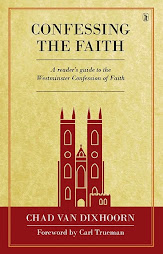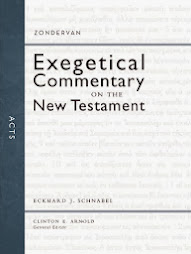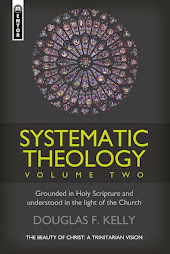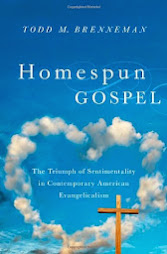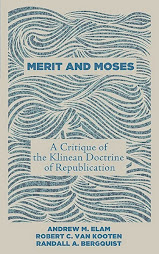The evangelical circus may be making an addition to their increasingly grotesque sideshow. Apparently, the world needs another reality show.
Ed Young Jr. of Fellowship Church in Grapevine, TX is in talks with a major network to bring his big life to the small screen.
While Ed Young Jr. is a grown man and fully responsible for his decisions, I nevertheless blame his church for this latest publicity stunt. You may remember that Ed and his wife Lisa have made headlines in recent years for things like the week long sex challenge they gave their church, the 24 hour bed-in on the roof of Fellowship Church, and the controversy surrounding their lavish lifestyle. All of this would be a bit more understandable if Fellowship Church were an independent word/faith congregation a' la Kenneth Copeland. But Fellowship Church is a member of the Southern Baptist Convention.
I understand that things happen gradually, but didn't any of the controversies (24 hour bed-in on the church's roof, the mansion by the lake, the partnerships with prosperity preachers, the million dollar condo in Miami, the private jet, the unaccountable board) merit a rebuke from his congregation? Ed Young did not become Ed Young Inc. without the permission of his church.
I offer the following observations in hopes that other churches will not follow Fellowship Church's example:
1. Fellowship Church should not have allowed their pastor to embrace prosperity preachers.
Fellowship Church should have done something when Pastor Ed embraced prosperity preachers like T.D. Jakes and the Houstons of Hillsong Church. These relationships seem to have only emboldened Ed to further his embrace of certain aspects of prosperity teaching.
2. Fellowship Church should not have allowed their pastor to appoint his own board of directors.
Fellowship Church has a strange and dangerous system of government. The men to whom Pastor Ed reports, the men who set his salary, are appointed by him. They are mega-church pastors from other churches living in different states. Ed should never have exploited his church in such a self-serving way. But Fellowship Church should never have allowed it.
3. Fellowship Church should not have made their pastor wealthy.
To be sure, church's are called to take care of those elders who labor in preaching and teaching. My own denomination admonishes churches to care for their pastor's financial needs so that he is not distracted from his calling by the cares of the world. But providing responsibly for a pastor so that he can afford a home and send his children to college is not the same as burdening his soul with an excess of material wealth. Scripture makes it clear that wealth, while not inherently sinful, does present a particular form of temptation that many cannot not find tolerable. Riches are dangerous for the pastor. Just as too little money can burden him, so too will great wealth. There is also the pastoral consideration of a church making its pastor wealthier than 95% of his congregation. We pastors are sinful creatures and we need our brothers and sisters to help us. Riches are a great temptation to any human soul. A church should not tempt their pastor to sin by paying him too little or too much.
4. Fellowship Church should not have allowed their pastor to become an exhibitionist.
One of the justifications Pastor Ed is offering for the proposed reality show is, "I don't mind showing anybody anything." Frankly, this mystifies me. There ought to be all manner of things in our lives that we don't want broadcast into millions of homes. I'm not suggesting that pastors should have hidden lives of shame. God forbid! But what happened to the idea of modesty? Is there any value in privacy anymore? I suppose in our celebrity saturated culture exhibitionism is simply the job description for the reality TV wannabe. But a pastor ought to have more wisdom than this.
So is it fair of me to blame Fellowship Church for its pastor's behavior? I believe so. They made a bargain that they now have to live with. They agreed to allow their pastor to be a celebrity (perhaps encouraged it) so long as he treated them like spectators in his own show.
I close with a description of a typical Sunday at one of Fellowship Church's new satellite locations (a Southern Baptist congregation):
Church happens inside a theater with plush leather stadium seats. As approximately 50 congregants trickle in — hipster dads with Sunday-morning stubble and retro eyeglasses, women in designer jeans with their hair pulled into ponytails — an extended remix of Justin Timberlake’s “Suit & Tie” thumps through the sound system. (The church embraces secular music.) The house music fades. A band in front begins a set of contemporary songs, some with vaguely spiritual lyrics. The leader of this morning’s service is 32-year-old Landon Pickering, whose title at Fellowship is global youth pastor. He is also the pastor at this branch and at the church’s downtown Dallas location. Pickering (he goes by “l_pick” on Instagram) welcomes the crowd with enthusiasm. They hand it back. Pickering has movie-star looks, tatts on his arms and speaks in a sort of urban dialect. He is also dating his boss’s eldest daughter, LeeBeth Young, 27, who works in communications and video for the church and is on hand this morning to help out.
The screen darkens. A video with better special effects than most Syfy channel shows begins. It depicts a set of bones magically being enveloped in tendons, then flesh, then skin, until a whole man — naked and ripped, but shown in chaste tight shots — stands upright. Music swells. Cross-dissolve. Ed Young is now on-screen, live, at the Grapevine church, flanked by two medical-supply skeletons. The hashtag for today’s sermon and the handles of Ed’s Twitter and Instagram accounts remain posted in the screen’s lower corner. Want to accept Christ into your life at the end of the service? Hit #32898 on your smartphone and ushers will assist. Young wears a black hoodie with shiny zippers, snug rust-colored pants and chunky lace-up black boots. Later that morning, for the 11:30 service at the mother church, he will don a new outfit: blue oxford button-down, plaid vest, jeans cuffed at the ankles and wingtips with no socks. (One of Young’s side projects is a blog he started, called pastorfashion.com.) Ahead of his arrival? An elaborate production number interpreting “Radioactive,” an end-times anthem and hit song by Las Vegas rock band Imagine Dragons. A young woman on-stage sings the apocalyptic tune while laser lights slice through a thickening mist from a fog machine. Behind her, three jumbo screens flash disturbing images of gas masks. At stagefront, two breakdancers in yellow biohazard suits contort and gyrate, and simulate drum-beating on large toxic-waste barrels.
 "If I profess, with the loudest voice and clearest exposition, every portion of the truth of God except precisely that little point which the world and the devil are at that moment attacking, I am not confessing Christ, however boldly I may be professing Christ. Where the battle rages there the loyalty of the soldier is proved, and to be steady on all the battle field besides is mere flight and disgrace if he flinches at that point."
"If I profess, with the loudest voice and clearest exposition, every portion of the truth of God except precisely that little point which the world and the devil are at that moment attacking, I am not confessing Christ, however boldly I may be professing Christ. Where the battle rages there the loyalty of the soldier is proved, and to be steady on all the battle field besides is mere flight and disgrace if he flinches at that point."





























